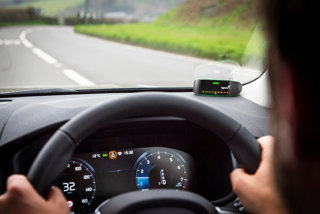McCarron Coates is warning fleets that the world of insurance claims is evolving, with the cost of vehicle repairs now outweighing those of personal injury claims for the first time in many years.
The shift in balance between the two main components that make up the total claim value is not down to any changes in legislation, such as the 2021 Whiplash Reforms, but due to the soaring cost of vehicle parts and repairs, says the fleet insurance specialist.
The costs, it explains, are partly driven by difficulties in obtaining parts post-Brexit, while repairs costs also have an element of inflation within them due to overall labour shortages.
However, for the most part, McCarron Coates says it is because there are few simple repairs now, with so many different and interlinked electronic components within vehicles that any reasonably significant prang is likely to see many parts of a vehicle needing to be replaced.
The issue is exacerbated when the vehicle is an electric vehicle (EV). The battery is a hugely expensive part of an EV and any damage to it is likely to result in a large repair bill or even a quick total write-off, it says.
The cost of an EV claim is also influenced by repair delays, with an EV repair taking significantly longer to complete than one on a vehicle with an internal combustion engine (ICE).
Sometimes, an EV has to be sent to a specialist repair centre, meaning the time off the road – and time during which an expensive hired vehicle might be required – is even longer.
McCarron Coates believes some insurers have not yet been able to accumulate enough knowledge with which to calculate the right level of insurance premium for the EV risk and so are levying extremely high compulsory excesses, of a level of around £1500, rather than the £500 we might expect to traditionally see on a fleet policy.
“The cost of vehicle repairs is driving up overall claims costs and that is not good news for any fleet operator, as it will translate into higher premiums in the months to come,” said Ian McCarron, director at McCarron Coates.
“Operators need to make sure their fleet bucks the trend, by enhancing their risk management, addressing the reasons for accidents and trying to keep their vehicles out of the repair shop.
“That, in turn, will increase operational efficiencies within the business and reduce the amount of time that the business has to give to claims handling.”
The insurance broker’s advice to fleet transport operators is to do all they can to manage their risks on the road better, seeking to avoid the accidents that could land their vehicles in the repair cycle, for some time.
The focus should be on enhanced driver training, an analysis of individual drivers’ weak points, so that these can be addressed, and on the use of telematics, to help increase driver awareness of the hazards around, it says.
McCarron concluded: “It is essential that fleet operators act now, instilling a better driving culture and the principle of trying to keep the vehicle, its driver and all other third parties safe, at all costs.”





















Login to comment
Comments
No comments have been made yet.